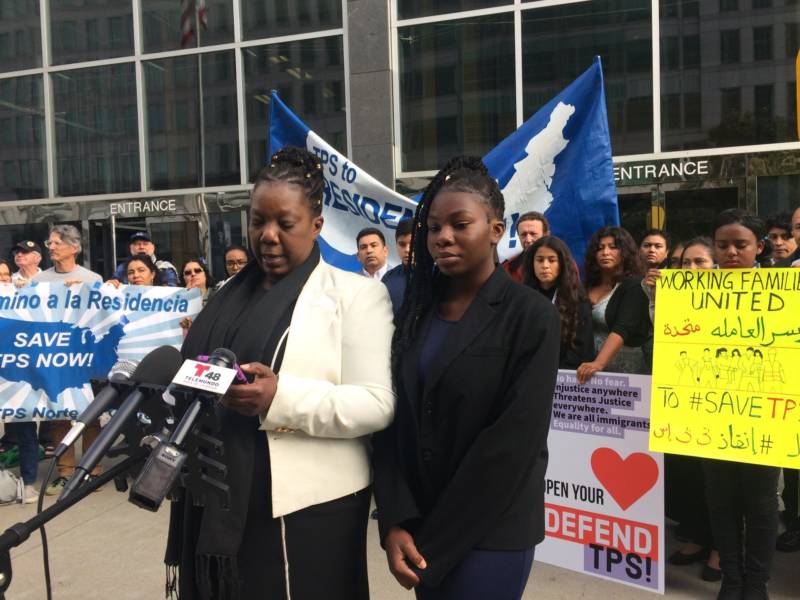A three-judge appeals panel is weighing a lower federal court's order that preserves — for now — temporary protections allowing hundreds of thousands of immigrants to live and work in the U.S.
During a hearing Wednesday in Pasadena, the 9th U.S. Circuit Court of Appeals panel seemed skeptical of U.S. District Judge Edward Chen's order last fall that blocked the Trump administration from ending Temporary Protected Status for more than 400,000 immigrants nationwide, including 75,000 in California.
The Department of Homeland Security announced last year that it was ending TPS for nationals of El Salvador, Haiti, Nicaragua and Sudan. In the spring, it added two more countries to the list: Honduras and Nepal. Judge Chen issued an injunction last October that has kept the protections in place while the courts consider the issue.
Congress created the TPS program in 1990 to provide humanitarian relief to immigrants already in the U.S. who could not return safely to home countries struck by wars or natural disasters, such as earthquakes. The secretary of the Department of Homeland Security must periodically review a country’s TPS designation to decide whether to extend the status.
The Trump administration defends getting rid of the protections, saying they’re no longer warranted for most TPS holders because the original conditions that led to the designations no longer exist.

